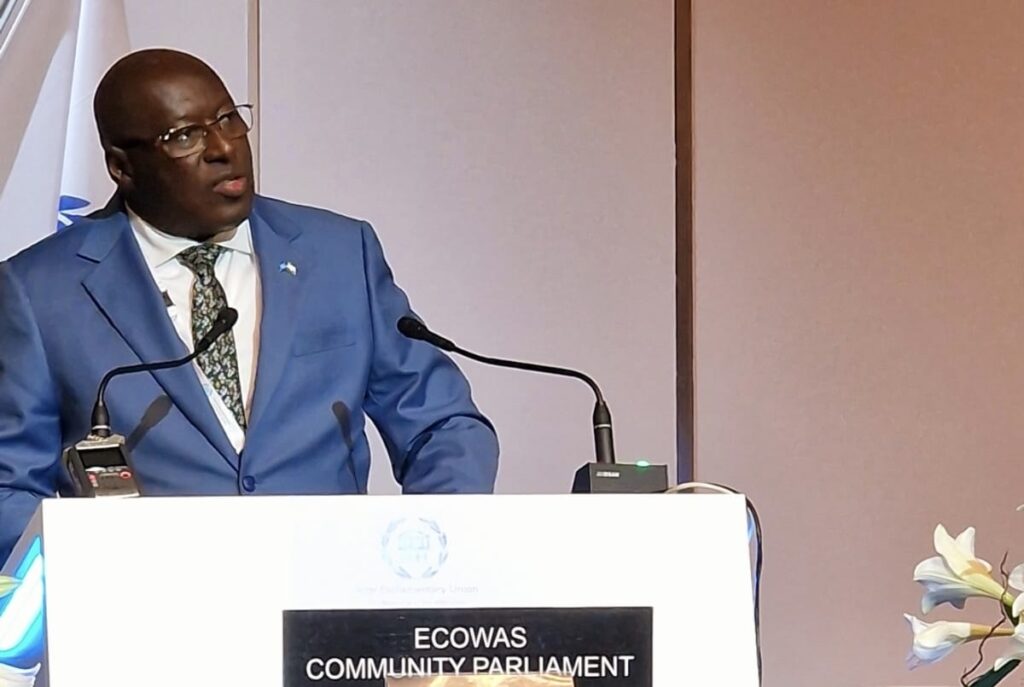In a compelling address at the 148th Assembly of the Inter-Parliamentary Union (IPU), Dr Sidie Mohamed Tunis, the Speaker of the ECOWAS Parliament, emphasised the crucial role of Parliamentary Diplomacy in fostering peace and understanding in the West African region and beyond.
The general debate theme, “Parliamentary Diplomacy: Building Bridges for Peace and Understanding,” resonated deeply with Dr Tunis and aligned perfectly with the core objectives of the ECOWAS Parliament. Established to promote peace, security, and stability in West Africa, the ECOWAS Parliament has steadfastly championed values such as democracy, human rights, gender equality, and sustainable development.
Dr. Tunis articulated the significance of the growing warmth and cordial relations between the ECOWAS Parliament and the IPU, expressing gratitude to the IPU leadership for their effective stewardship in addressing global challenges. He highlighted Parliamentary Diplomacy as a vital tool for increasing mutual understanding and fostering dialogue to address the region’s diverse issues.
Drawing attention to the unique legitimacy of Parliamentary Institutions as democratic bodies representing the people’s will, Dr. Tunis underscored the integral role of Parliaments in governance processes and peace-building efforts. He cited examples of the ECOWAS Parliament’s active engagement in conflict resolution within the sub-region, including its pivotal role in fostering peace within the Mano River Union and providing recommendations for resolving member-state political crises. Leveraging legislative bodies to foster international harmony and cooperation, Dr. Tunis emphasised the importance of Parliamentary initiatives, policy advocacy, and oversight functions in promoting global peace, economic growth, and development.
Dr Tunis acknowledged Parliamentary Diplomacy’s challenges, including escalating geopolitical tensions, regional conflicts, and limited resources within parliamentary institutions. He called for collaboration with civil society organisations, NGOs, and grassroots movements to augment parliamentary diplomatic efforts and enhance citizens’ engagement, accountability, and responsiveness to societal needs. Furthermore, he advocated for a rules-based international order. He reinforced multilateral institutions, such as the United Nations, to bolster the effectiveness of Parliamentary Diplomacy in addressing complex global issues ranging from climate change to pandemics.
In conclusion, Dr. Tunis expressed hope that the Assembly would advance the collective goal of an integrated, developed, and prosperous world where Parliaments play an increasingly important role in peace initiatives and conflict prevention efforts. Dr. Sidie Mohamed Tunis’s impassioned address at the Inter-Parliamentary Union Assembly serves as a clarion call for enhanced Parliamentary Diplomacy to build bridges for peace and understanding in a rapidly evolving global landscape.
